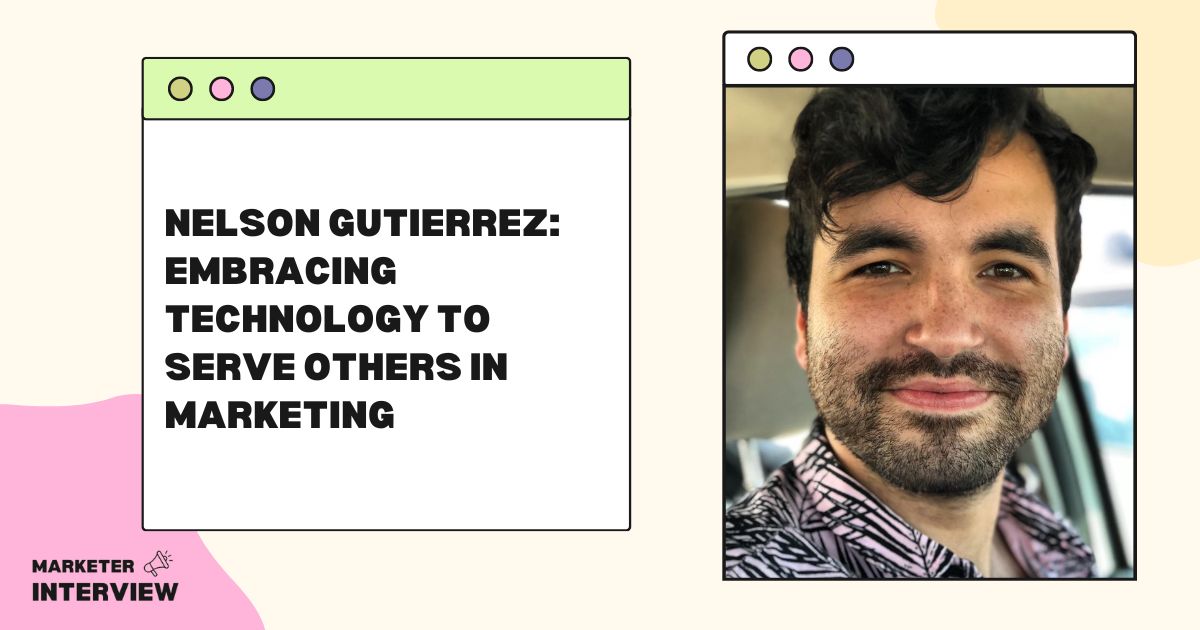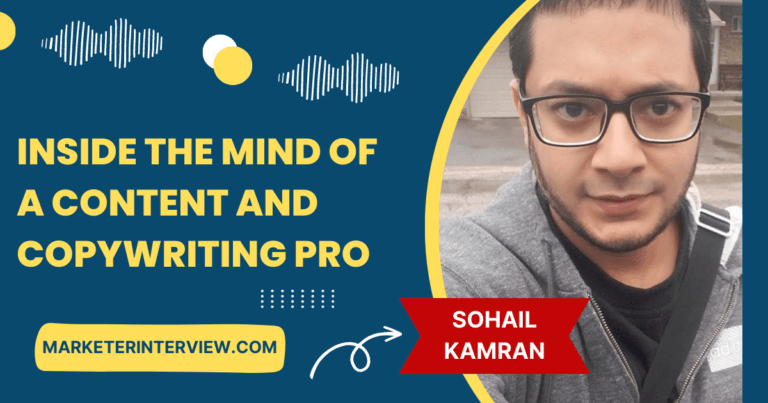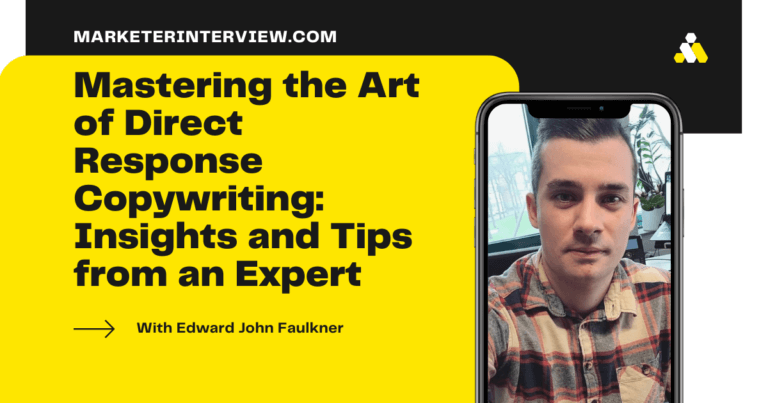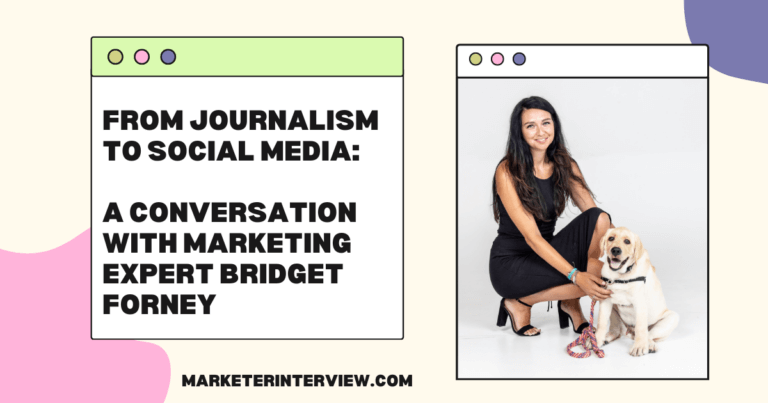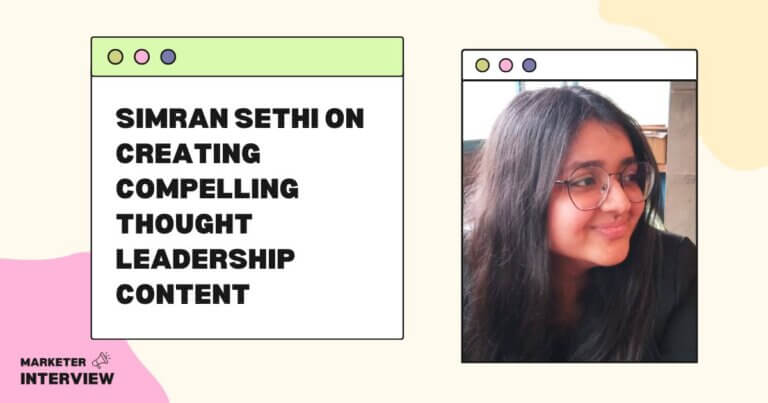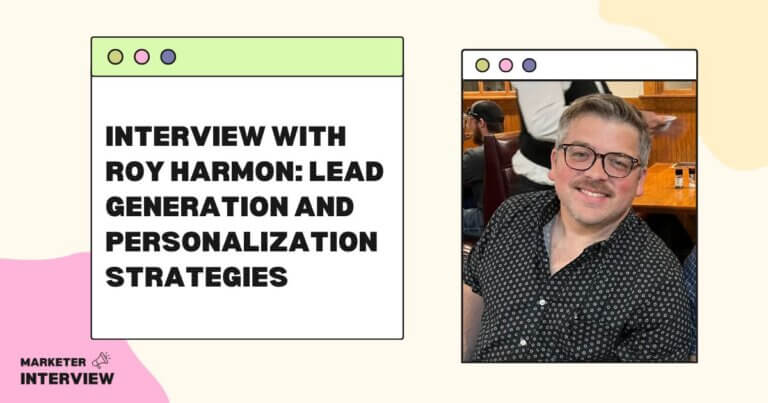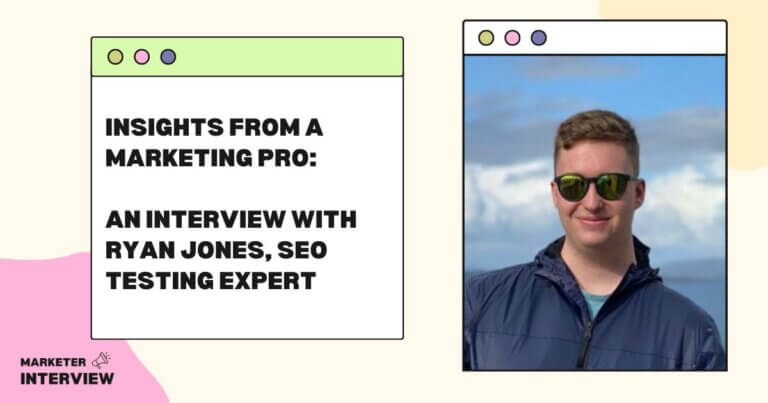Nelson Gutierrez: Embracing Technology to Serve Others in Marketing
Today, we have the pleasure of interviewing Nelson Gutierrez, an independent video editor and marketing specialist who has made it his mission to use technology to serve others.
As a Bradley University graduate in journalism and communications, Nelson learned the magic of working with people, technology, and his creativity to tell stories.
He has expanded his skills and knowledge to include video editing, copywriting, and project management.
In this interview, we will delve into Nelson’s experiences in the marketing industry, including his approach to work ethic, client relations, and the evolving role of creatives in a rapidly shifting digital space.
Contents
- 1 Can you tell us about your journey into the marketing industry?
- 2 How has your background in journalism and communications influenced your work as a video editor and marketing specialist?
- 3 What are some of the biggest challenges you’ve faced in your career?
- 4 Can you walk us through your creative process when working on a marketing project?
- 5 How do you approach client relations and customer service? What are the most critical factors in building strong client relationships?
- 6 What are the most essential qualities that a successful marketer should possess?
- 7 How do you stay up-to-date with the latest trends and developments in the marketing industry?
- 8 Can you talk about a particularly successful marketing campaign you worked on?
- 9 How do you balance creativity with data-driven decision-making in your work?
- 10 What tools and software do you use regularly in your work as a video editor and marketing specialist?
Can you tell us about your journey into the marketing industry?
I was drawn toward the communications field entirely by chance. I initially set out for university with my eyes on a criminal justice degree.
It wasn’t long before I realized that perhaps I wasn’t such a good fit for that direction, but it was worth the life lesson to say I once had a professor who carried a holstered pistol to class every day.
One of my other courses at the time was an A/V class deep in the bowels of my college campus. From the outside, it was an intimidating chamber seemingly tucked away to deter the meek from accidentally stumbling in. But once I walked through the door, I found an intense communications playground in there.
It was in that once-mysterious department that I was first exposed to the basics; a prototypical newsroom environment, video editing software, camera and lighting set-ups, and other doo-dads that I found… completely boring.
However, as time passed and the desire for a good grade loomed over me, naturally some skills started to develop. It was a bit of a wax-on/wax-off scenario, where I didn’t understand why certain aspects of the coursework were necessary.
But sure enough, the best-case scenario arrived, and it all clicked into place. Suddenly, all these different department areas blended together and made sense. I could finally see The Matrix.
I went off to Bradley University shortly after to pursue a journalism degree. It was there I discovered how demanding this profession could be, at least if you wanted to put out decent work. It felt like I had to be in ten different places on campus, using twenty different softwares all at once.
It was strangely satisfying, with a surprising cardio benefit thrown in with all the rushing around. But whenever it got difficult, I would zoom out and remind myself where this all started for me, and how far I’d come.
When you naturally do that and reject any notion of giving up, it’s a sign you’re on the right path. So I stuck to it.
How has your background in journalism and communications influenced your work as a video editor and marketing specialist?
In journalism school, you touch on all the points. There are of course the areas dealing in broadcast, print, digital, and all the subsets that make up that career path.
For most of my life, I considered myself a writer. With where I am now in my career, I very much remain one.
However, when I was deep into my education at Bradley University, I found myself – against all odds – gravitating more toward the broadcast end of the spectrum.
I enjoyed going into the field with a camera set up, a microphone, and an objective. Then, when the job was done, I stepped away with more knowledge about a specific topic and more field experience. But I loved that even with that satisfaction, the work wasn’t done.
Diving into the editing bay and developing a relationship with the software (Avid Media Composer at the time) was where a good chunk of my passion solidified. There was a sense of authorship behind each edit.
It didn’t take long to realize that with a keen eye and an exacting touch, this skill could achieve an infinite amount of goals that I couldn’t even imagine yet. I knew there was something special in the edit – specifically, with my way of executing it.
What are some of the biggest challenges you’ve faced in your career?
The pandemic threw me for a loop. That’s probably the worldwide slogan for 2020-2023. But, at least from where I stood as a recent graduate, anything journalism-related became next to impossible to sustain.
It seemed as though anyone in that field was firmly set in their place, and anyone who wasn’t was laid off. At any rate, I ultimately found my chances of a post-graduation communications position to be zero.
This led to a decent portion of time when I tabled that ambition and began applying for work wherever I could. But, of course, I *wanted* to put my degree to use. If I’ve learned anything since graduation, it’s that I’m in very good company there.
The funniest part is this: 95% of my video editing and copywriting skills came from that impossible time.
Slouched indoors like everyone else, I bought myself Adobe Premiere Pro and started making my video essays. I didn’t need a professor to keep learning about this area. I just needed to leverage my motivation with the infinite content of the internet.
The seeds I planted at university and watered during the pandemic led to a garden of skills that allowed me to break into the freelancing world. Of course, this was never the plan, but that shouldn’t step in the way of what you do best.
Can you walk us through your creative process when working on a marketing project?
It always begins with people.
Talking to people, getting to know more about them, what they want to accomplish – there is nothing of worth I’ve ever done that didn’t begin with people.
I am a liaison connecting peoples’ goals to achievable results. What can we do together that blends our skills and optimizes our work for exposure?
Conversations are the most crucial part of the process. It is the intangible razor that trims the fat and gives the project its direction.
Then it’s time to do what I’m there for. I like to be straightforward with my clients that I specialize in three things: video editing, copywriting, and people. That’s the secret sauce that gives my work its flavor. So I will use these three things to tap into the world we live in, and have it work for us.
How do you approach client relations and customer service? What are the most critical factors in building strong client relationships?
Being human is my number one policy. I’ve never found much benefit in pretending to be a robot, or acting like I know everything.
I prefer an honest and warm report with whomever I work with. However, I understand that approach doesn’t work with everyone, for which I have a simple remedy: I don’t work with those people.
Everyone is different, and it’s important not to operate in a bubble when it comes to working relationships.
Goals, personalities, budgets, work ethics, and a million other moving parts will always define a working relationship, which is why I value humanity and openness to direct the whole dance. I know that’s what I hope for in a partner, so that’s what I try to give.
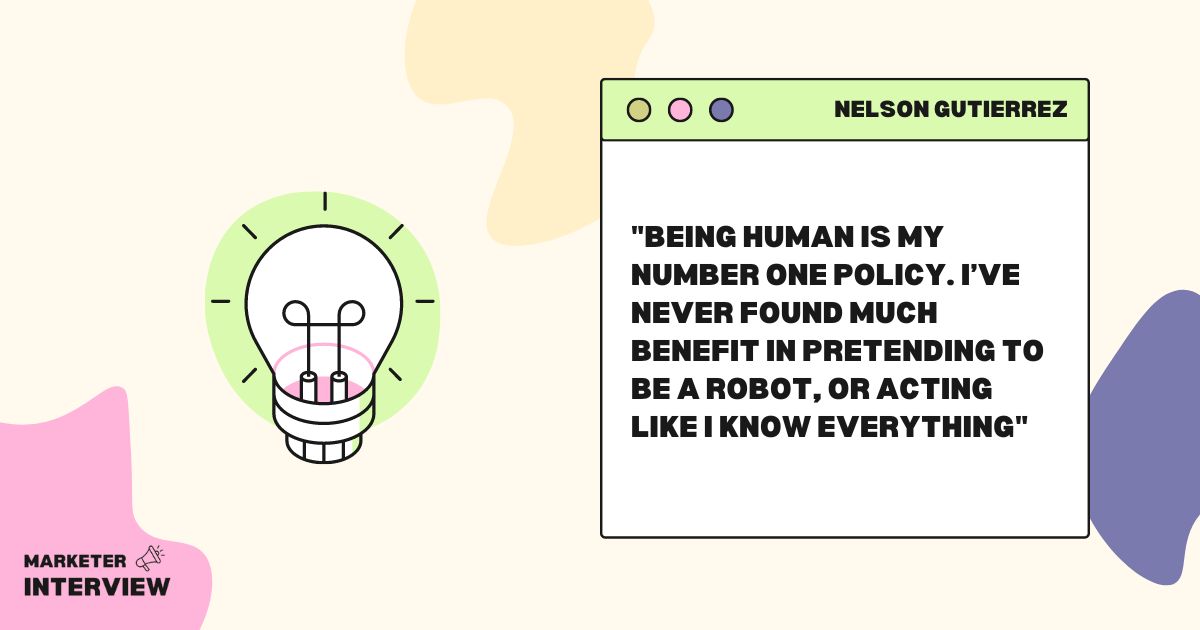
What are the most essential qualities that a successful marketer should possess?
I have touched on them slightly by now, but one I haven’t mentioned yet is confident creativity.
I’ve found that a keen interest in the arts lends itself to a specific and oddly powerful edge in my work. I might sometimes wonder whether my creativity can be lacking, but I think that’s the unavoidable dirge of anyone who is creatively inclined. A good antidote is to always err on the side you’re on.
Couple this with that everlasting advice of “always be learning,” and I imagine you’re already above a large swath of aspiring marketers. However, I believe it’s true that continuing your education for the rest of your life is the only way to live life properly.
If you’re bold enough to be in the marketing field in the first place, you can’t afford just to tread water. Instead, you have to build your knowledge and skills aggressively.
How do you stay up-to-date with the latest trends and developments in the marketing industry?
We’re lucky to live in as connected a world as we do. It’s even possible to accidentally stay up-to-date with the marketing industry just by looking at your phone.
But with how easy it is to connect with professionals and experts in the marketing industry, being intentional about it is a good idea.
I use many straightforward resources, like LinkedIn or even Reddit (yes, you heard me right). YouTube is also a resource that, when used with intention, can sometimes feel illegal with how much valuable content it yields.
Can you talk about a particularly successful marketing campaign you worked on?
I’m currently working with a physical fitness start-up based in Colorado. I spoke with the CEO to solve his biggest problem: perceived stagnancy in their recent operations.
I was honest with him about why that stagnancy could be. First, there was an almost completely absent line of connection between the company and its customer base, outside of product transactions and the occasional social media posts.
I suggested three simple but time-consuming fixes:
- Original video content for the website
- A blog component for both pros and newcomers
- A weekly newsletter to bring all that content into his clients’ inboxes.
These would all be filling their digital real estate with fitness education, interviews with professionals, and other cool stuff with which his user base could connect and have positive experiences.
See how conversation guided us? We both had a direction to bring our skills toward one unifying goal.
The rest is technical skills fostered by continued conversation throughout. It has reinvigorated everything the company stands for, and continues to grow.
How do you balance creativity with data-driven decision-making in your work?
Marketing is a dance between intuition and analysis. The data aspect of a project is the ultimate tool for understanding consumers.
Analyzing market research, customer insights, and other metrics allows that data to speak its language and tell me where to go, when to go there, and how to optimize for exposure. It is like the canvas on which a marketing specialist can finally paint and connect a brand with its audience in powerful ways.
Balancing this creative muscle with a continuous stress test of data throughout the process is crucial. That’s where the jewels of this profession reveal themselves.
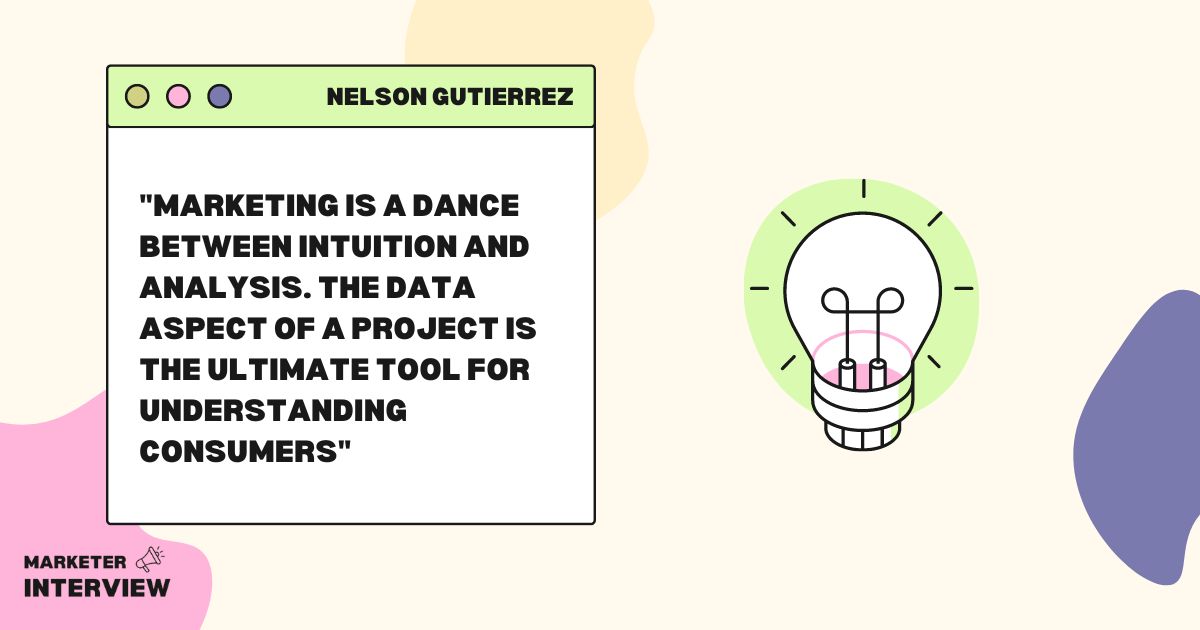
What tools and software do you use regularly in your work as a video editor and marketing specialist?
Most of my chosen tools won’t come as a surprise to anyone.
A large percentage of the Adobe Creative Suite is always ready to go on my laptop. Google Analytics is a staple, with CrazyEgg and SparkToro being recent tools I’m becoming more familiar with.
For YouTube content, I have a Chrome extension called VidIQ to analyze the data behind every video (including mine) to see what elements contribute to their success (or failure). Things such as tags, keywords, date and time of posting, engagement metrics, and more are displayed and easily read.
I’m still learning about new tools to help on my journey. If I’m lucky, I’ll always be learning more.
